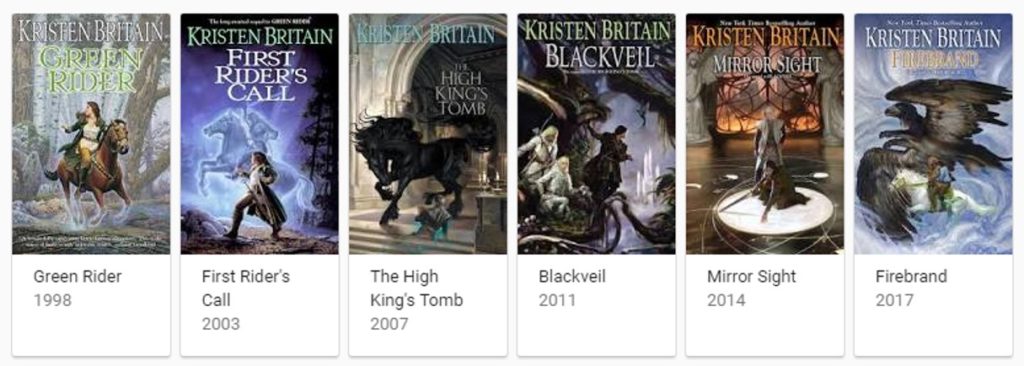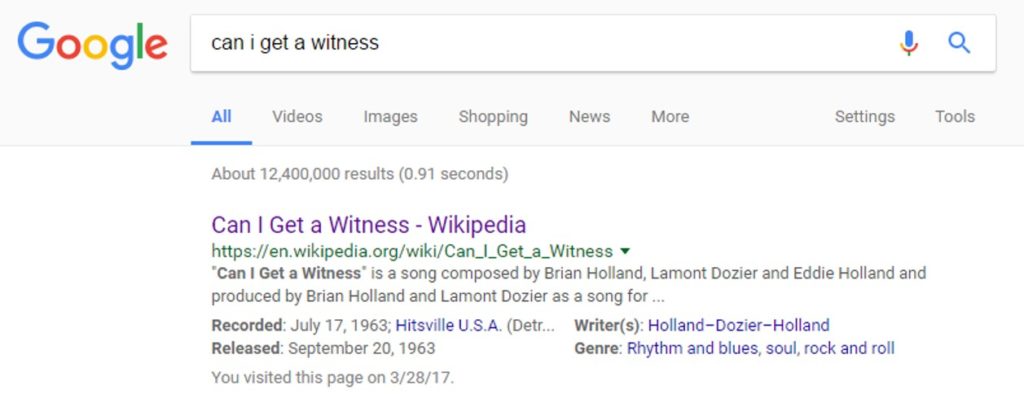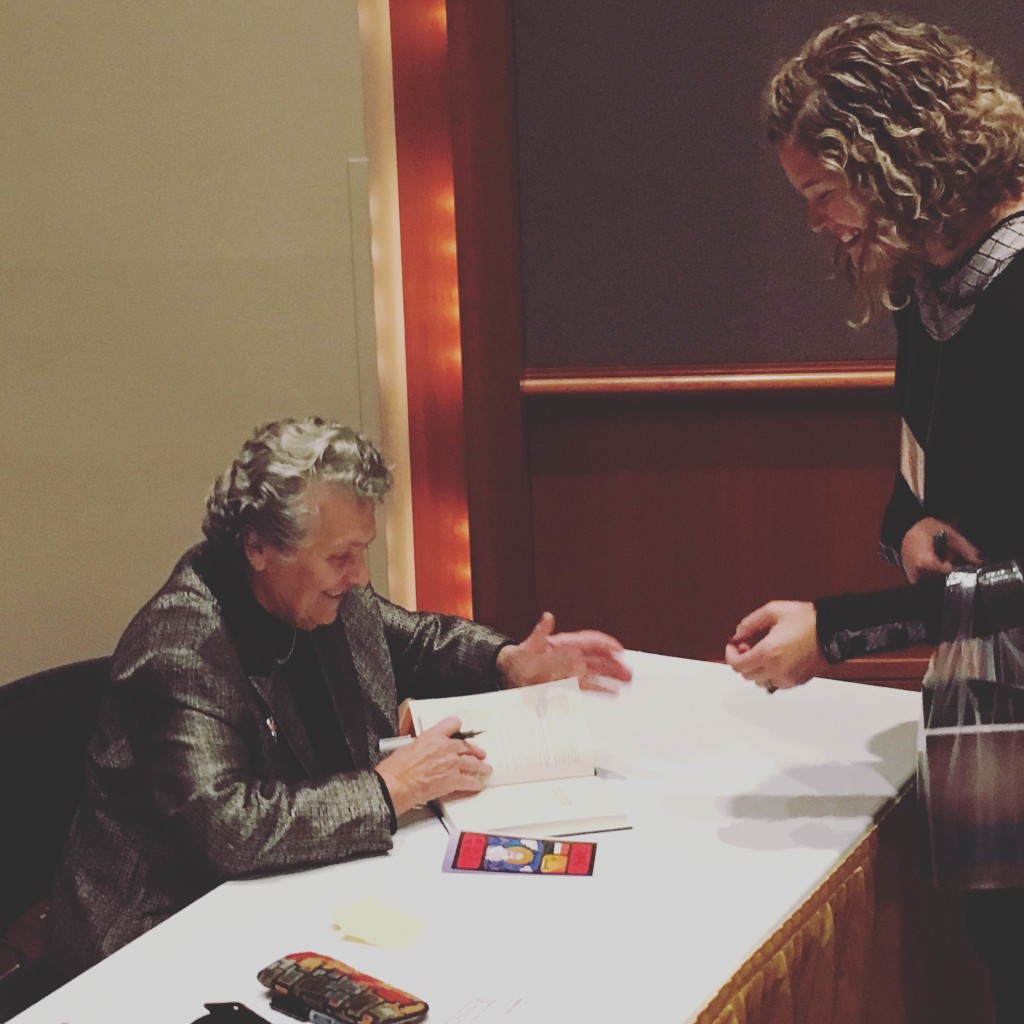I just finished two books, almost simultaneously. I’ve always got several (4 or so) going at any given time — 2 fiction for devouring (one with my eyes, one with my ears) and a couple non-fiction on a slow simmer in the background for when the mood is right. Because my eyes are so much faster than my ears, it’s unusual that I’ll finish two up around the same time, but this time I did. And this was one of those times where an interesting theme emerged and made me think.
I spent the entire day on Saturday (very literally) finishing up the sixth installment of the Green Rider series. My friend Jess got me hooked in grad school, which was all good because there were already three books out at the time and I got to read them in rapid succession. I’ve had to wait years between each of the others though, so when I finally get my hands on the next one, I basically have to check out of life for a bit to soak it all in.

I’ll spare you the details… ok, actually, I’ll spare me the details because it’s pretty much hardcore fantasy and a description would likely scream NERD… but suffice it to say that a major theme of this most recent book was a journey that required a witness.
I didn’t really think much of that theme until this afternoon when it appeared once again. The book I finished on my post-work, full-sun (!!!) run was the third in a series recommended to me by a fellow audiobook lover — the Pendergast series by Douglas Preston and Lincoln Child. I’m still early in the series (there are 17 books!), but I fell in love with the bizarre yet brilliant Special Agent Pendergast right away and love that the books bring back some, but not all, characters and settings from the previous book each time. It’s super fun and they’re a great listen for my runs. I was hoofing it up a big hill (Mount McMillan as my friend Amy would say) this afternoon listening to the epilogue of The Cabinet of Curiosities when Pendergast brought this book’s (surviving) sidekicks to a barely marked grave in a public cemetery north of New York City to burn the secret to prolonged life… an event of historical import so great that it couldn’t be done alone, it needed a witness.
The book ended shortly thereafter, but that word — witness — stuck with me. It tickled something in the back of my mind and fueled my thoughts for the rest of my (blessedly downhill) run home.
I wrote about another book and its use of the phrase “benevolent witness” a couple years ago the first time Seth and I went through IVF. It was something of an explanation for why I am like I am with all the words. And I liked, and still agree with, that post upon re-reading. But it didn’t quite capture what I thought about this afternoon. In that moment, I knew I needed a benevolent witness — someone to really see me and be kind anyway. But it wasn’t so much about kindness today.
So what?
I came home and did what any hard-hitting writer-type would do: research.
Google search: can i get a witness

Done and done.
So, it was Marvin Gaye all those years ago who, with a kick ass song (with so-bad-they’re-good dance moves from the crowd, at least in this video), coined the phrase.
Mistreated by a lady love, Marvin Gaye wanted a witness to the unfairness of it all. For someone else to see the truth.
BINGO!
There’s something inherently comforting about knowing that someone else has really seen you in any given situation. Served as witness to joy or pain, bravery or fear, success or unfairness. Regardless of the role a witness ultimately plays in a situation, to know that someone was there validates us in a way nothing else can. Our minds can play tricks, our emotions can wreak havoc, but a witness is stolid — a witness stands by you and says this is real, you are real, you matter, you experienced…
But why on Women Rock Wednesday?
Because Women have so often born witness to the biggest and smallest moments of my life. They still do.
The more I mull it over, the more I find myself believing that there’s something experiential about being a woman in the world that lends itself well to women serving as witnesses for each other. Even when we didn’t share a physical or temporal moment, there are so many familiar stories that, when recounted, end with a common refrain: “I can’t believe I thought it was just me!!”
Most of us have bled through our shorts/pants/pajamas at some point in our lives. Most of us have felt badly about our bodies. We’ve been patronized. We’ve struggled with sexuality, fertility, family planning, femininity (too fast, too slow, too much, not enough). We’ve all spent our lives walking a line between being nice and being firm. These are things that, at least in the culture I know, are nearly universal. And we can serve as witnesses for each other in these ways and so many others.
It can be tempting to isolate, particularly in moments of shame or pain. But to have a witness is to receive validation (or maybe even a dose of reality should we have contorted something painful into something worse than it really is), to share the burden, to recognize the universality of our experiences in a way that removes our ability to truly isolate ourselves from the world. Women can do that for each other. Should and do do that for each other. And for that, I’m so grateful.
Can I get a witness?

